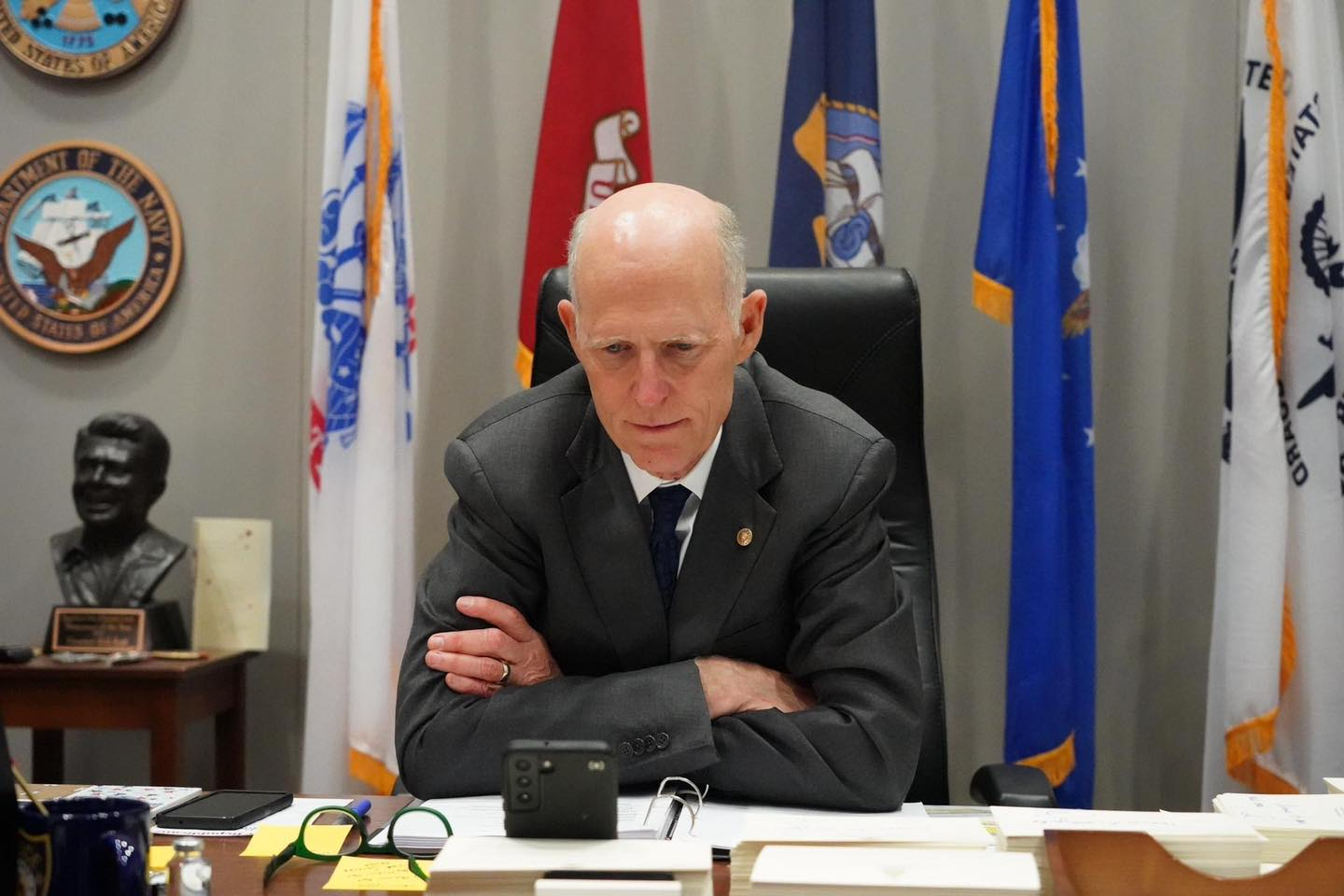Senator Rick Scott has articulated a clearly defined stance on tariffs, advocating for their use as a vital tool in reshaping U.S. trade policy and bolstering American workers. By endorsing tariffs as part of a broader tariff strategy, Scott believes that imposing these economic measures can help to level the playing field against foreign competitors, particularly in the context of strained China trade relations. He emphasizes that these tariffs are designed to ensure that U.S. workers can thrive, selling more products without the hindrance of competitive barriers. As the government implements a series of tariffs, the potential benefits for U.S. workers are a central theme in Scott’s economic policy discussions, underscoring the relationship between tariffs and trade deficits. While the walk on this path may lead to volatility, Scott remains steadfast in his belief that tariffs can generate a healthier economic landscape for American labor.
In recent discussions surrounding international trade, the topic of tariffs has resurfaced as a pivotal point of debate, showcasing the challenges and opportunities present in commerce. These trade barriers, which have gained attention under various administrations, particularly emphasize a complex relationship with foreign markets, notably regarding interactions with China. Advocates argue that such measures can significantly enhance the position of domestic labor, affording U.S. employees greater market access and protection against international competition. With a focus on reshaping trade dynamics, the prevailing economic policies seek not only to address existing trade deficits but also to redefine how nations engage economically. As conversations evolve, the broader implications of these trade negotiations and their potential benefits for the workforce remain at the forefront of economic policy discussions.
The Impact of Rick Scott Tariffs on U.S. Workers
Rick Scott’s endorsement of tariffs as a mechanism to empower U.S. workers underscores his commitment to protecting domestic industries. He argues that by imposing tariffs, particularly on nations like China, the U.S. can drive down trade deficits and incentivize American consumers to purchase domestically produced goods. This approach aligns with Scott’s broader economic policy strategy to level the playing field, allowing American manufacturers to compete effectively without being undercut by foreign competition that benefits from lower labor costs and lax regulations.
Additionally, Scott contends that these tariffs could lead to more robust job creation within the United States. By reducing reliance on imported goods, businesses will be encouraged to invest in local production facilities, thus augmenting the workforce and bolstering the economy. As debates around tariffs continue, the emphasis remains on how these policies, if implemented correctly, can positively affect U.S. workers, providing them not just retraining but also new opportunities and roles in a growing economy.
Evaluating the Tariff Strategy Amidst China Trade Relations
The tariff strategy, particularly in context with China trade relations, reflects a contentious yet calculated response to the shifting global economic landscape. Rick Scott’s perspective, rooted in a belief that tariffs can restore balance in trade relations, suggests a heavy-handed approach to curtailing the economic power of competitors. By advocating for intense tariffs, such as the staggering 145 percent levied on Chinese imports, Scott aims to generate favorable terms for American laborers while challenging the legitimacy of China’s trade practices.
Conversely, this aggressive tariff strategy raises concerns about escalating tensions between the U.S. and China, potentially leading to trade wars that could destabilize economic relations further. Critics argue that rather than resolving trade deficits, such measures might prompt retaliatory actions that could harm U.S. exports. While Scott maintains that fortifying U.S. manufacturing is critical, the broader implications for international diplomacy and cooperation must also be considered, as aggressive tariffs could ignite conflict rather than facilitate constructive negotiations.
Potential Economic Policy Outcomes of Scott’s Tariff Approach
Implementing Rick Scott’s tariff strategy poses a dual-edged sword for U.S. economic policy. On one hand, the idea is to protect American jobs and invigorate domestic production through higher tariffs that discourage imports. This could lead to increased demand for U.S. products, potentially creating more employment opportunities in manufacturing sectors. If realized, this would align with Scott’s vision of a thriving U.S. economy supported by its local workforce and businesses.
However, the anticipated benefits must be weighed against the risks of inflation and trade retaliation. Economists warn that imposing tariffs, especially on fundamental goods, may lead to higher prices for American consumers, ultimately impacting their purchasing power. These economic repercussions could counteract the initial benefits intended by Scott’s policies, reflecting the complex interplay between protectionist measures and global trade dynamics that must be carefully navigated to avoid unintended consequences.
Understanding the Debate on Tariffs and Trade Deficits
The ongoing debate surrounding tariffs and their influence on trade deficits is at the heart of Rick Scott’s economic stance. By advocating for higher tariffs, particularly against nations perceived as economic threats, Scott seeks to diminish the trade imbalance that many argue has hindered U.S. economic growth. This strategy aims not only to reduce the import of cheaper goods but also to stimulate the domestic market by compelling consumers to turn to American-made alternatives.
Despite the proposed benefits of this approach, there are voices within the economic community that caution against the efficacy of tariffs as a means to significantly reduce trade deficits. Critics suggest that while tariffs may provide short-term relief to certain industries, they could lead to long-term economic challenges, including strained international relations and retaliatory policies from affected countries, thus creating a cycle of economic turmoil rather than sustainable growth.
The Role of Economic Policy in Supporting U.S. Workers
Rick Scott’s economic policy, particularly his tariff propositions, places significant emphasis on supporting U.S. workers. By advocating for a structure where American labor can thrive without the weight of foreign competition, Scott articulates a vision of economic independence that resonates with many constituents. His assertions highlight an intention to create an environment conducive to local job creation through strict trade agreements.
However, the success of such economic policies is contingent upon balancing immediate benefits with the potential for longer-term economic repercussions. To truly support U.S. workers, Scott and policymakers must remain vigilant about the impact these tariffs could have on inflation, consumer prices, and overall economic health. Careful monitoring and adjustment of these strategies will be essential to ensure that the ultimate goal—empowering American workers—remains achievable without plunging the economy into uncertainty.
The Costs and Benefits of Tariffs on Global Markets
As Rick Scott champions an aggressive tariff strategy, the costs and benefits of such policies on global markets come into sharp focus. By raising tariffs significantly, particularly against rivals like China, Scott’s approach seeks to shield American industries from foreign competition, theoretically fostering local market growth. This protectionist measure is intended to enable U.S. businesses to navigate global markets more effectively, providing a competitive edge in their respective sectors.
On the flip side, the repercussions of imposing high tariffs are likely to ripple beyond U.S. borders, affecting international trade relationships and sparking market volatility. Global partners may retaliate, leading to a series of trade escalations that could detrimentally impact both U.S. exports and international diplomatic relations. Thus, while tariffs are seen as a tool for economic protection, they also raise significant legal and ethical questions regarding the future of trade relations.
Exploring the Relationship Between Tariffs and Inflation
The dialogue around tariffs often intersects with concerns about inflation, particularly in the wake of Rick Scott’s proposed strategies. As tariffs are imposed on imported goods, the immediate effect can lead to increased prices for consumers, as businesses are forced to pass on the cost of tariffs. Scott himself admitted uncertainty about the inflationary implications of tariffs, suggesting a need for careful analysis of how such policies might destabilize consumer costs.
Moreover, economist insights into the relationship between tariffs and inflation suggest a complex interplay. While protective tariffs aim to bolster American production and minimize reliance on imports, they might inadvertently contribute to rising costs across the board. Policymakers will need to craft solutions that not only advocate for tariffs as a protective measure but also consider their potential to impact the economy adversely.
Long-term Economic Implications of Tariffs on U.S. Growth
In examining Rick Scott’s stance on tariffs, it is crucial to consider the long-term economic implications for U.S. growth. Tariffs, while intended to protect domestic industries, could also hinder overall economic competitiveness. A shift towards isolationist trade policies may foster temporary local benefits but could lead to stagnation if domestic industries do not adapt to an increasingly globalized market.
Furthermore, the historical precedent suggests that tariffs can lead to escalation in trade wars, ultimately harming the very industries they are designed to protect. Scott’s focus on tariffs should balance immediate protective intentions with a strategic vision that prioritizes sustainable growth, which may necessitate embracing more collaborative trade practices rather than solely relying on protectionist measures.
Revisiting Trade Agreements: A Solution to Tariff Conflicts
Amidst the contentious atmosphere surrounding tariffs, revisiting existing trade agreements could provide a productive path forward that aligns with Rick Scott’s protective instincts without inciting adverse reactions. Scott’s skepticism of negotiating with trading partners may overlook the potential benefits of crafting fairer trade agreements that enhance U.S. competitiveness without resorting to higher tariffs.
By embracing dialogue and negotiation, U.S. policymakers could achieve a balance where tariffs are viewed as a last resort rather than a deterministic strategy. Exploring ways to engage with nations while protecting American interests could lead to solutions that ultimately benefit U.S. workers and manufacturers, fostering a more resilient economic environment.
Frequently Asked Questions
What is Rick Scott’s stance on tariffs and their impact on U.S. workers?
Rick Scott supports tariffs as a strategy to level the playing field for U.S. workers. He believes that by imposing tariffs, American workers will gain an advantage in selling their products without facing barriers from foreign nations.
How do Rick Scott’s tariffs relate to the economic policy towards China?
Rick Scott’s tariffs are part of a broader economic policy aimed at challenging China’s trade practices. He argues that these tariffs are necessary to protect U.S. workers and reduce reliance on Chinese exports, as he views China as a major competitor.
What are the implications of Rick Scott’s tariff strategy for trade deficits?
Rick Scott claims that his tariff strategy will help reduce trade deficits by compelling other countries to lower their tariffs and barriers. He argues that a decrease in trade deficits will ultimately benefit U.S. manufacturers and workers.
How does Rick Scott connect tariffs to the issue of inflation?
While discussing tariffs, Rick Scott expressed uncertainty about their direct effect on inflation. He believes that controlling inflation is more dependent on achieving a balanced budget rather than solely on tariff rates.
What criticisms does Rick Scott have regarding China’s economic power?
Rick Scott has voiced strong criticism of China’s economic and political influence, suggesting that engaging in trade with China poses a significant threat. He argues that tariffs and economic pressure are necessary to diminish China’s power.
What impact did Rick Scott’s tariffs have on U.S. stock markets?
The tariffs imposed by the government, which Scott supports, have contributed to volatility in global stock markets. The uncertainty surrounding these tariffs has been linked to significant losses in market value and economic contraction.
How does Rick Scott propose to simplify trade agreements in light of tariffs?
Rick Scott suggests that instead of pursuing complex trade deals, the focus should be on establishing straightforward agreements that reduce barriers, allowing American workers to access foreign markets more easily.
What role does Rick Scott believe tariffs play in national economic strategy?
Rick Scott views tariffs as a crucial component of a national economic strategy designed to protect U.S. workers, enhance manufacturing, and reshape America’s trade relations, particularly with competitive nations like China.
| Key Point | Details |
|---|---|
| Purpose of Tariffs | Rick Scott argues tariffs will help level the playing field for U.S. workers and encourage foreign nations to lower their own tariffs. |
| Impact on Trade Policy | The recent imposition of broad tariffs aims to reshape U.S. trade policy and has led to volatility in global markets. |
| View on China | Scott believes China is America’s major competitor and advocates for reduced trade with them to avoid conflict. |
| Tariff Rates | The U.S. imposed a 10% tariff on most countries; China faces a 145% tariff. |
| Concerns on Inflation | Scott is uncertain about how tariffs will affect inflation, emphasizing the need for a balanced budget to control it. |
Summary
Rick Scott tariffs have sparked significant discussions about their implications for U.S. workers and the economy. Senator Rick Scott supports the Trump administration’s tariff strategy as a means to protect American interests against foreign competitors, particularly China. By imposing tariffs, Scott believes that American workers will be able to sell more products without facing barriers. While some economists critique this approach, Scott remains focused on the potential economic advantages for U.S. manufacturers and the necessity of balancing the federal budget to address inflation concerns. As the situation evolves, the discourse surrounding Rick Scott tariffs continues to highlight the delicate balance between trade policies and economic stability.



